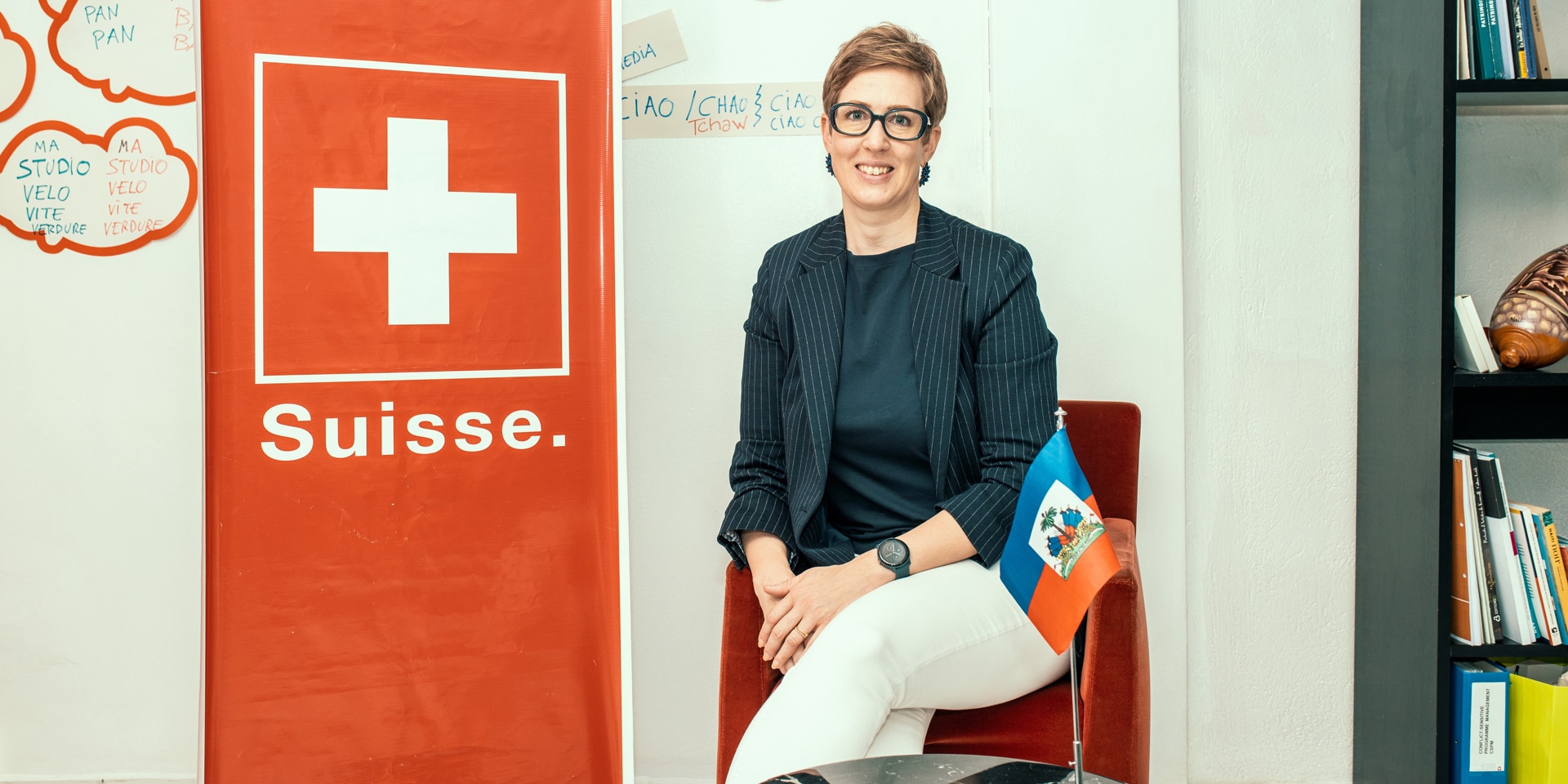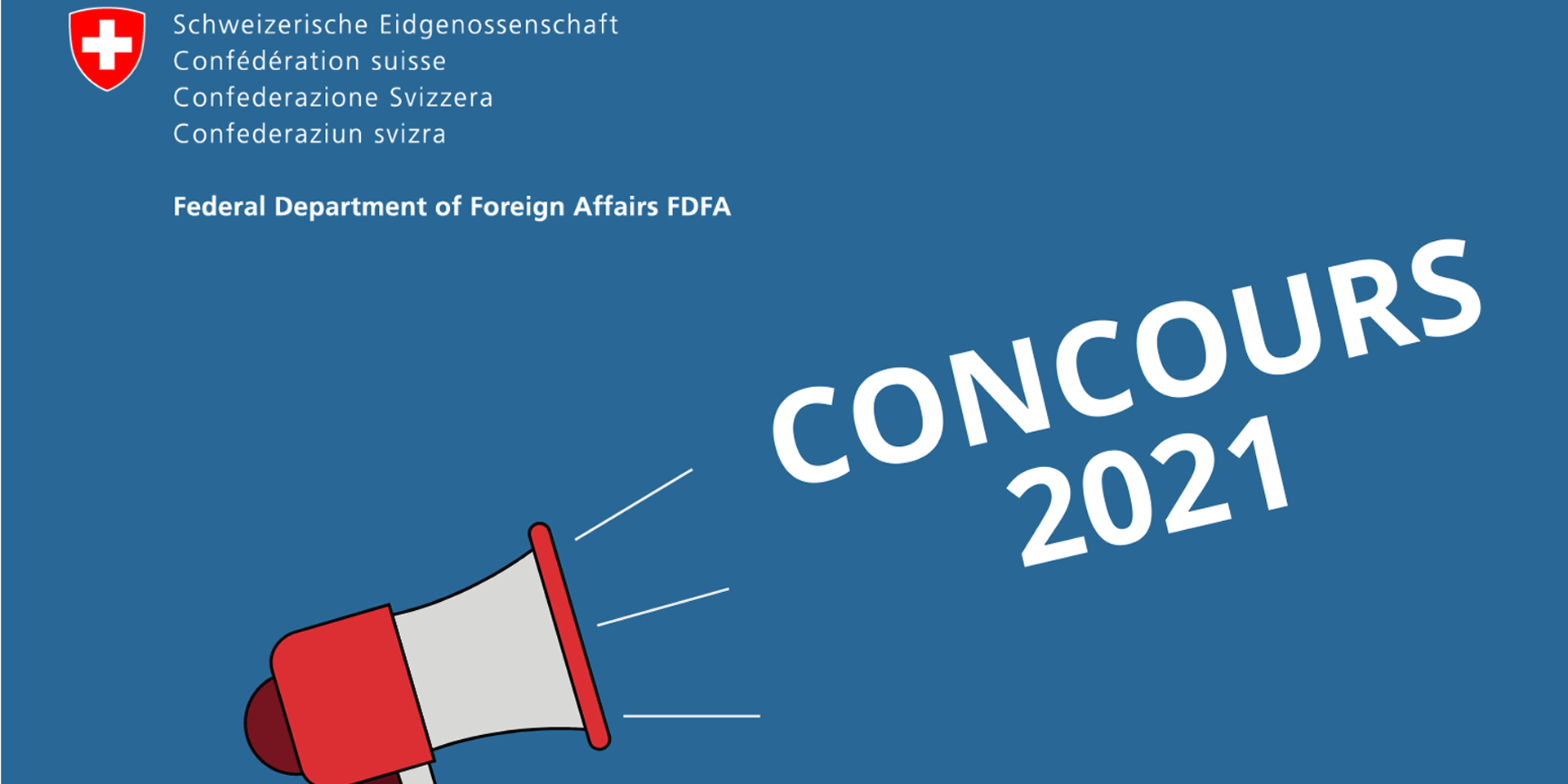Career in international cooperation: what does working in the field actually mean?
Meet Séverine Weber and Andrea Inglin. To follow their careers, which have taken them around the world, we're going to need a map and a geography lesson. In fact, that's exactly what it means to be a member of the FDFA's transferable staff: moving to a new post every three to four years. The competitive selection process (concours) for a career in one of the department's three areas abroad – diplomacy, consular affairs, management and finance (KBF), or international cooperation – is starting on 26 May. If you're interested in the last one, here's what you need to know.
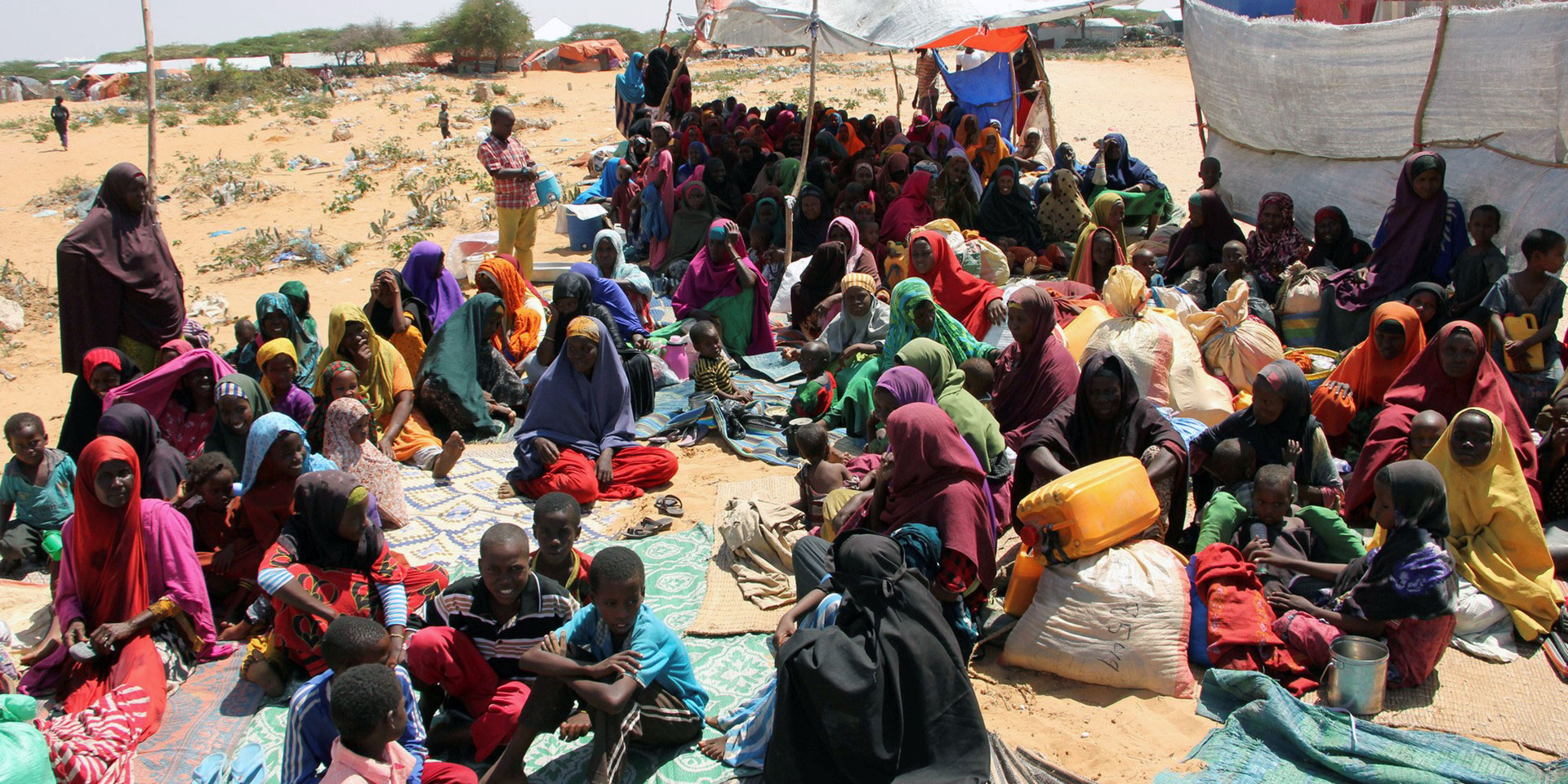
Ensure that displaced people in Somalia can benefit from durable solutions is one of the issues Séverine Weber has dealt with during her career in international cooperation. © FDFA
Three career paths are available to the FDFA's transferable staff: diplomacy, consular affairs, management and finance, or international cooperation. Both Séverine Weber and Andrea Inglin opted for this last one. While studying at university, neither of them ever imagined that they would one day be living in Myanmar and Nicaragua. But let's start at the beginning – at Lake Neuchâtel.
Each new mission is like starting from scratch
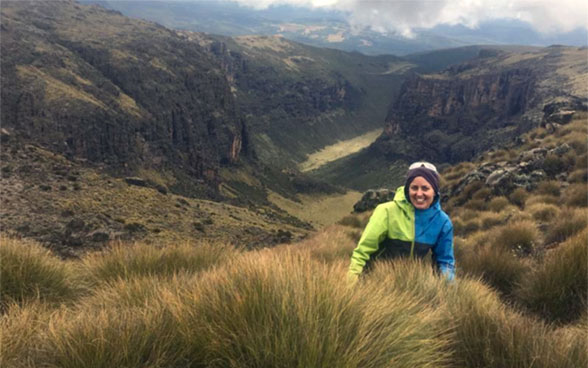
Séverine studied literature at the University of Neuchâtel. It was an Erasmus exchange that opened her eyes to the possibility of working abroad in a multicultural context. In fact, it was a turning point for Séverine, who went on to continue her studies in Brussels in the field of international politics. After interning at the Swiss Mission to the European Union, something else became clear: it was international cooperation rather than diplomacy that Séverine wanted to follow, working in the field in the developing world. So it was time to turn back and come face-to-face with the realities and challenges of this work, and to "connect" as she puts it with new people, new stories, and new cultures.
Séverine's first professional experience abroad was in Kosovo as a UN volunteer for the United Nations Development Programme, which is supported by the FDFA. "This type of experience is ideal for young people with a fairly generalist background, as in my case. In fact, it's an ideal gateway into working in international cooperation," explains Séverine. After two years in the Balkans, she applied for the SDC's junior staff programme and was deployed to the UNHCR, first in China and then Sri Lanka. Séverine's time in northern Sri Lanka towards the end of the civil war left her with a strong conviction about the importance of protecting civilians. "Every day we witnessed the traumatic experiences of the Sri Lankan people and were confronted by harsh, uncooperative authorities as well as the army, which was everywhere. Every day we documented cases of human rights violations and tried to prevent new ones from happening," she says.
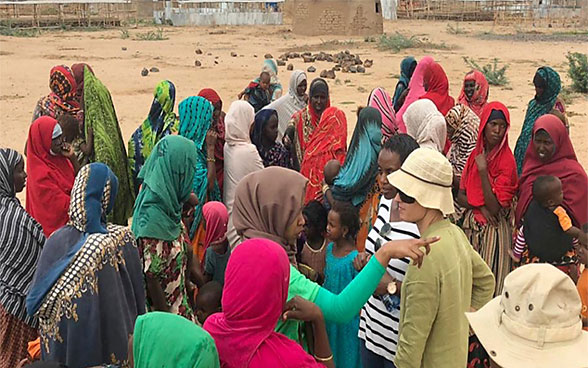
After a spell in Bern as programme officer for West Africa, Séverine returned to the Horn of Africa (which includes Kenya, Somalia and Ethiopia) for four years as the SDC's deputy regional director. There she focused on the issue of forced displacement, a subject close to her heart. There are nearly three million internally displaced people (IDPs) in Somalia. Situations like these often last for years and have a very negative impact on local peoples' lives. "One of our tasks is to make sure that there are durable solutions for IDPs. We dialogue with governments and mayors to ensure that IDPs are considered as citizens, and have the chance to integrate and access public services, as well as mobilising the private sector to create more jobs, for example," notes Séverine.
After her work in migration, Séverine went on to work in the field of health in Myanmar, where she is currently deputy director of cooperation. "That's what I love about this work: each new mission is like starting from scratch. You get to discover a new country, new issues and new people to work with," she explains. Séverine will stay in Myanmar for another two years. "The country has been going through a difficult period since the military coup in 2021. Being here to help people motivates me a lot. We're trying to make a difference and contribute in a small way to Myanmar's recovery efforts," she adds.
Working in difficult contexts requires multicultural and interdisciplinary skills
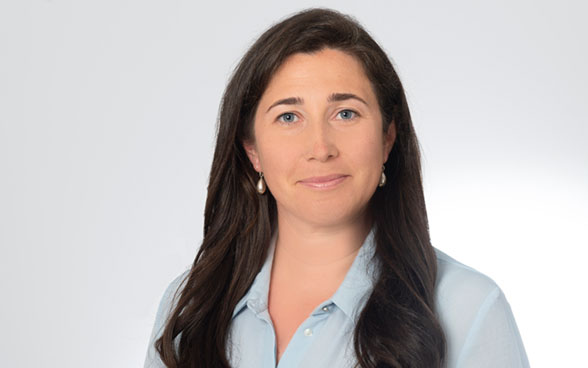
People who embark on a career in international cooperation come from very different backgrounds. But what qualities do you need to be able to work in this area? Economics graduate Andrea Inglin's career can illustrate some of these points for us. Voluntary work at a home for street children in Mexico, internship with the Organization for Security and Co-operation in Europe (OSCE) in Kyrgyzstan, project management at Swissnex in San Francisco – it was a combination of all of these different steps that led Andrea to a career in international cooperation with the FDFA. "It might sound a bit corny but what still motivates me today is the chance to make a difference through my work, to be able to find solutions that help people living in poverty and other difficult contexts," she explains. Andrea developed an interest in development economics already during her studies, leading her to specialise with a master's degree in development and cooperation from ETH. "I was the only economist; everyone else had a different academic background. This in itself was good training for my current job at the FDFA where I need to be able to work in teams that are not only intercultural but interdisciplinary as well," says Andrea. After working in Ghana for SECO, in 2015 Andrea moved to Nicaragua as part of an SDC programme. These postings in different countries showed her what she was most passionate about – working in the field and being in contact with other people.
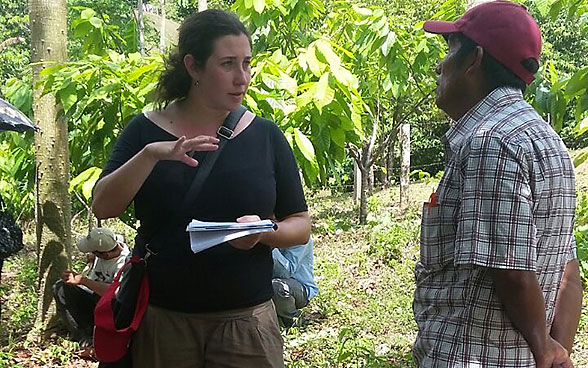
But moving around and having to start anew each time is also challenging. "It's important to keep building new networks abroad, privately and professionally," notes Andrea. And you have to be adaptable for this. Andrea points out that "you need a lot of patience, for when things don't improve as quickly as you'd like, and a little humility too – because international cooperation is just one piece of the bigger picture. To see the change we want depends on multiple factors." There are also challenges for your private life, reconciling work and family being a major one. Your partner, or 'accompanying person' in transferable staff jargon, and children have to be prepared to make some sacrifices and reinvent themselves in each new context.
Andrea is currently in Bern working for the Thematic Cooperation Division in the Economy and Education Section where she is in charge of private sector development and vocational education and training. "I represent the SDC in the policy dialogue on these issues in both national and international expert committees, as well as at events and in discussions with other federal offices," she explains. Andrea is also responsible for advising other SDC units on these issues when setting up a new programme, for example. In the field, "we're in contact with a lot of people – not just colleagues but representatives of international organisations, farmers, ministers who visit our projects, private-sector stakeholders, etc." The work at head office in Bern is different but the objective is the same: "to find new and durable solutions to meet the needs of our partner countries and vulnerable communities. This is at the heart of my work, and is what I continue to be passionate about – whether in Bern or abroad," she adds.
Concours 2023
Are you interested in pursuing a career at the FDFA? Then join us! We are currently recruiting transferable staff in 'Diplomacy - profile I', 'International cooperation – profile I' and 'Consular affairs, management and finance' between 26 May and 19 June 2023. Find out more about conditions and admission requirements at Experienced professionals.

